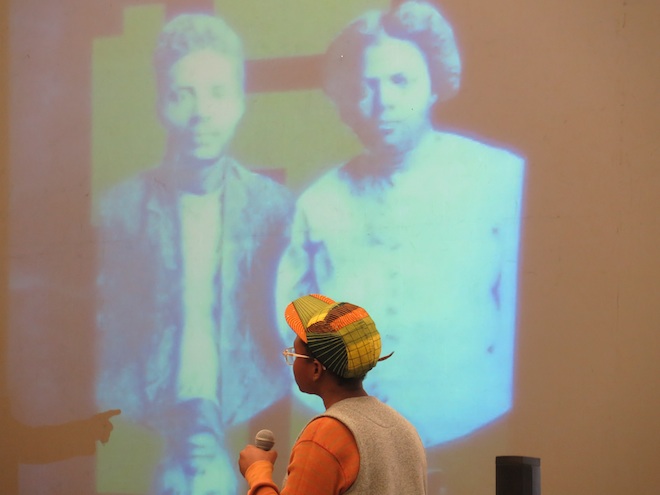
During our Digital Diaspora Family Reunion Roadshow at DC Public Library, emerging young artist Adrienne Gaither participated by sharing her art work which draws from her family photo albums and stories. In celebration of Women’s history month, we are highlighting her work which is currently on view at MoCaDa in Brooklyn in a show entitled: “Formed in Fate'”
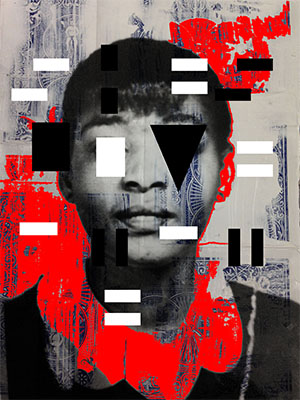
A Woman to Remember designed by Adrienne Gaither
Practicing between traditional (painting, mixed media) and digital (graphic design) methods of art making, Adrienne’s work bridges the gap between the past, present, and future to transform familiar imagery and abstract forms into systematic imaginative compositions. Thematically, she attempts to highlight the struggle between what we believe we see, what we want to see, and what is actually there to be seen. Detached from the duties of communication and meaning, Adrienne uses the material qualities of language with color to acknowledge, explore, narrate and express her experiences and the world around her.
“Being someone that relies heavily on technology to disseminate information, I am obsessed with the ways in which perception, information, and expression have in some way been flattened by the world of technology. My conceptual and systematic framework style are exploited as a means to an end; for me, clarity and balance are found solely though the process itself. What remains is a new and deconstructed idea of communication. The conclusion, if any, is left to the viewer’s discretion.”- Adrienne Gaither
After the Roadshow, Thomas Allen Harris reached out to Adrienne to find out more about her work as well as her first experience with Digital Diaspora.
Thomas Allen Harris (T) How did you hear about our event as part of the launch of Memory Lab at the DC Public Library and what lead you to attend?
Adrienne Gaither (A) I heard about the screening from a friend. I had mentioned to her that I needed to get Through a Darkly Lens for an upcoming art workshop I am doing on archival photographs. When she mentioned the screening, I knew I had to be there.
T Many folks came up and shared their family photos and stories with the Digital Diaspora Family Reunion post screening of Through A Lens Darkly but you were might have been the youngest and the only self declared artist. What was the favorite or most inspiring story/photo you heard/saw?
A The collective storytelling of personal black histories was empowering. Every story told is significant. Our family’s survived and we are able to share that history which reshapes and informs our personal identities.
T What led you to come up on stage and share some of your family photos and story.
A I was inspired to share through listening to everyone else’s stories. A safe space was created and I felt comfortable enough to share my story.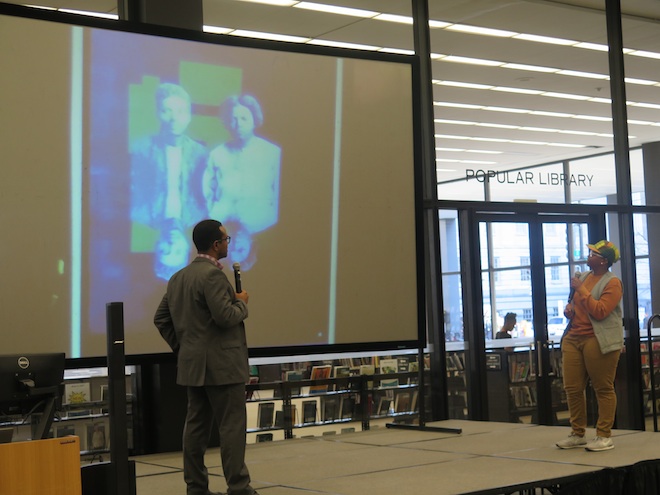
T You have a show up in Brooklyn right now. Tell us about your work. Where we can experience it and how you came to work with your family photographic archive?
A Currently, my work is on view at MoCADA in NYC until April 10, 2016. My exhibition is titled Formed in Fate, which visualizes how fixed concepts like
family and race are subjectively contingent and can shift due to the mutable nature of perception. Memoirs of Permanence: A Winning Hand, is a series about my family members, their influence on me, and the fact that I can not select or change the family or circumstances I was born into. I have to build upon that history. To acknowledge this universal fact in my work I use archival photographs of my family and playing cards to highlight familial prominence and influence.
T In one of your manipulated images the man in the photo lost his head and you mentioned that he had a reputation for not being upstanding in his behavior towards his wife. How does your knowledge of the stories behind the image affect your treatment of them & its outcome in your work?
A My knowledge of family members and their history affects the outcome of my work greatly. Depending on my relationship or knowledge of each family member there are certain things I am willing/ not willing to expose. My goal is to capture their disposition through my perspective. Sometimes with privilege of their gaze, sometimes without privilege.
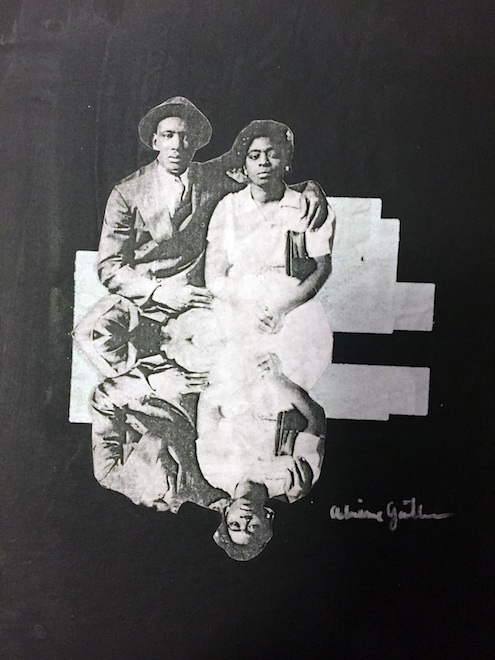
GaitherAdrienne_jeneration.NewNegro_2015_9x12r
T Finally, Why do you think Digital Diaspora appeals to millennials who might or might not have an appreciation for their family photos?
A With social media connecting the diaspora of African peoples and the Internet now connecting people with their enslaved ancestors. It makes perfect sense as to why millennials would be attracted to the Digital Diaspora. Sharing history and acknowledging our ancestors is becoming really important to this generation.
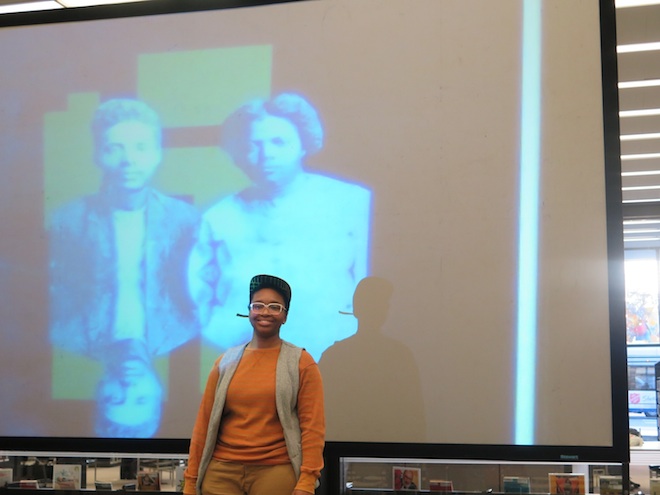
No comments yet.